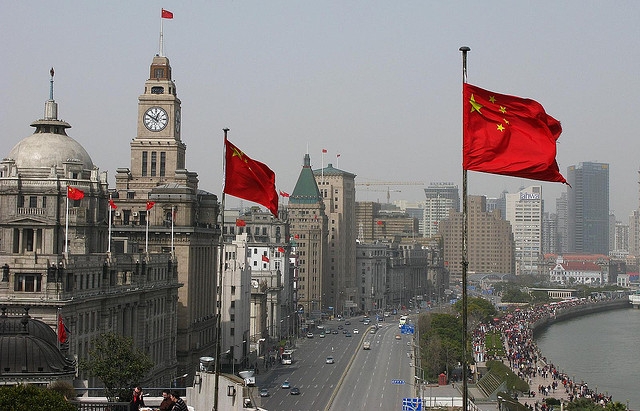 Print This Post
Print This Post- The Strategist - https://www.aspistrategist.org.au -
Asia Essentials: soft not hard
Posted By Graeme Dobell on August 26, 2013 @ 06:00
 The Asia Essentials express Australia’s experiences during more than two decades of slow institutional construction in Asia since the end of the Cold War. The emerging weak system is an expression of Asian habits of ‘soft regionalism’, as opposed to the Western habits of ‘hard regionalism’ as expressed in institutions such as NATO and the European Union.
The Asia Essentials express Australia’s experiences during more than two decades of slow institutional construction in Asia since the end of the Cold War. The emerging weak system is an expression of Asian habits of ‘soft regionalism’, as opposed to the Western habits of ‘hard regionalism’ as expressed in institutions such as NATO and the European Union.
In the first half of the 20th Century, we saw the tragic consequences of rampant nationalism as nations competed for power. Great powers in Europe bumped up against each other without the benefit of regional institutions to smooth problems as they arose. The result was devastating conflict.
In the 1950s, sceptics saw European integration as unrealistic. But most people would now agree that the goal of the visionaries in Europe who sat down in the 1950s and resolved to build prosperity and a common sense of security community has been achieved. It is that spirit we need to capture in our hemisphere.
What’s clear is that if a serious strategic competition emerges in Asia in the decades ahead, the US will expect a lot more from its allies than it does today—politically and militarily. The region would be held hostage to the happenchance of crises—events of perhaps limited intrinsic importance but upon which the credibility and resolve of protagonists are tested. Compared with Europe a century ago, Asia today is even more cursed with unresolved issues from which a crisis could develop. Strategic crises can be resolved—or at least temporarily defused—by negotiation (Munich, 1938; the Cuban missile crisis, 1962), by force (WWI; the Falklands War in 1982) or by a combination of both (Berlin Airlift, 1948–49; Suez, 1956). But in any case, they can represent a dislocation—things won’t generally be the same after as before. That means that our ability to look forward is radically constrained.
But one modest point can be made: it’s possible that the great powers could muddle through. WW I wasn’t inevitable and, with better communication (which we have today) and more adroit diplomacy, the war to end all wars might have been averted. And, despite numerous crises and proxy wars, the Cold War never erupted into outright conflict. It might even be the case that a crisis of sufficient gravity could force a grand bargain along the lines discussed above—although that, too, would reshape the strategic landscape in unforeseeable ways.
Article printed from The Strategist: https://www.aspistrategist.org.au
URL to article: https://www.aspistrategist.org.au/asia-essentials-soft-not-hard/
[1] Image: http://www.aspistrategist.org.au/wp-content/uploads/2013/08/2954513564_9d0838657c_z.jpg
[2] Launched in 2008 as a quest for Community: http://www.theaustralian.com.au/politics/full-text-of-kevin-rudds-speech/story-e6frgczf-1111116541962
[3] expansion of the East Asia Summit to include the United States and Russia: http://www.aiia.asn.au/qa/762-is-the-east-asia-summit-rudds-gift-to-the-world
[4] speech to the Shangri-La dialogue: http://www.iiss.org/en/events/shangri%20la%20dialogue/archive/shangri-la-dialogue-2009-99ea/opening-remarks-and-keynote-address-9dcf/kevin-rudd-de50
[5] Known unknowns: Uncertainty about the future of the Asia-Pacific: http://www.aspi.org.au/publications/publication_details.aspx?ContentID=269
[6] ullrich.c: http://www.flickr.com/photos/ullrich/2954513564/sizes/z/in/photolist-5v5DX3-9xhuyV-9XnHGp-8mbnyN-e2FTtD-6UJLLG-6ZnhRx-FmAqQ-ChMjS-74RhtA-7YJn9P-7YMBqG-LkaB-Lk9A-8vAzVU-81NrfP-8zwzus-ycbcV-as5SU-bJ1k3-7NMA52-GaHRN-bKZYtx-5kyTc-8V9Pfu-5MyZCs-DpGU-7YMAZw-jRm9W-5Yjts-5ScDV4-8bEYkT-8V9LJw-bAFjDD-7YMwNm-7YMzDm-7YMw8C-3J8Sn-c9LC6s-8V6GTK-buJmA9-bsYfXy-7YMxhq-7UwRFL-7YJkDt-7YJkca-7YMzZA-7YJjNe-7xHy23-7rfZXp-8V6HnV/